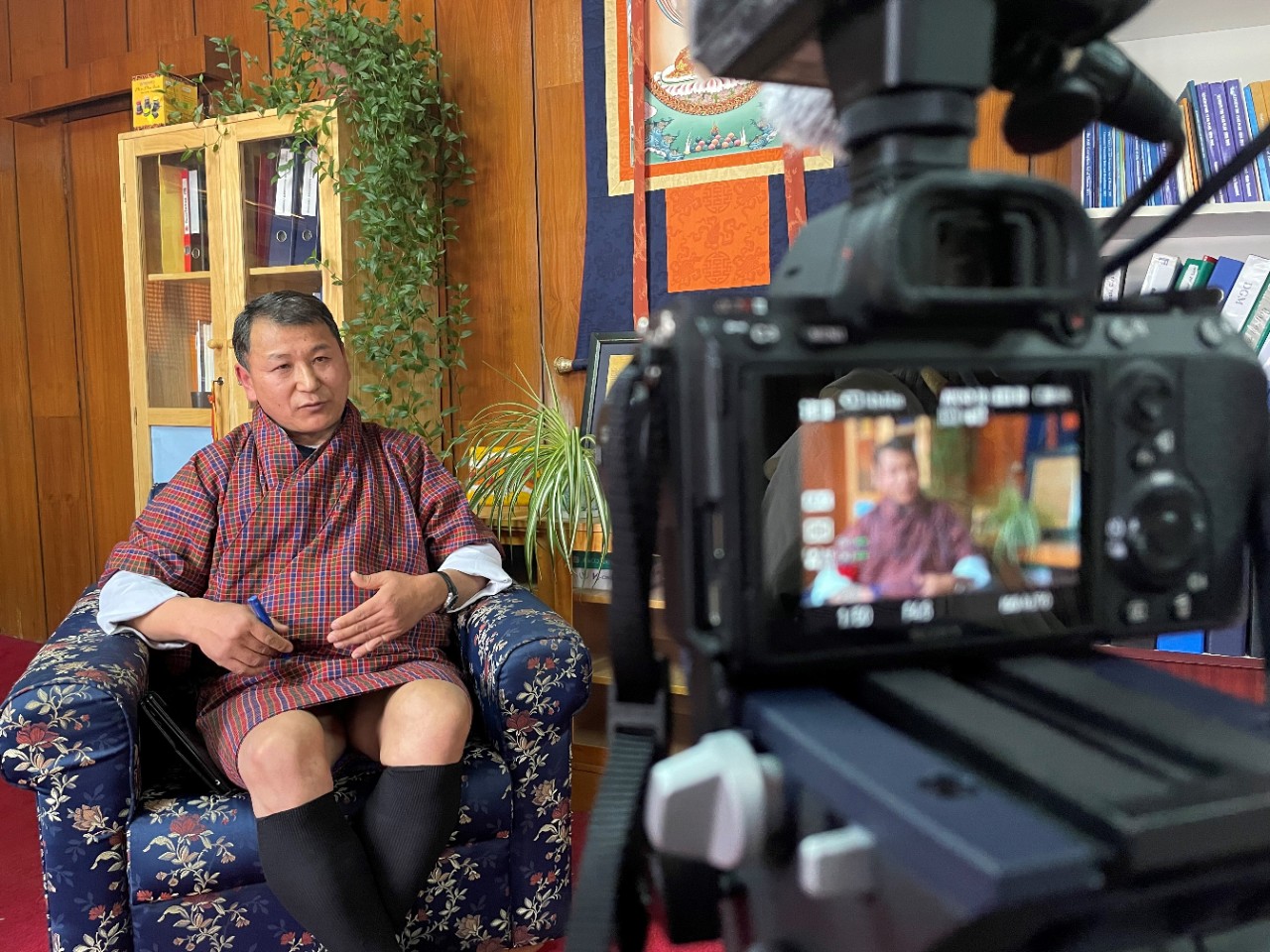Bhutan trains its highland communities in high-value cheesemaking in a bid to enhance their livelihoods.
Highlanders try their hands at French and Italian cheesemaking
August 31, 2023

Kinga Zangmo, 26, is from Dagala, a highland community in Thimphu
26-year-old Kinga Zangmo from Dagala, a highland community in Thimphu, has never heard of French and Italian cheese, let alone making it. Kinga was excited when she learned that the Department of Livestock is providing a training on French and Italian cheese production for the members of Bhutan Yak Federation.
Kinga and 20 others—members of Bhutan Yak Federation as well as officials from the Department of Livestock involved in highland development—are undergoing a hands-on training in processing highly sought after Tomme and Gumdhel (French cheese) and Caciocavallo (Italian cheese) at Tshelungkha Milk Processing Unit in Haa district.
“This is a great opportunity, especially for young people like me,” Kinga said. “High-end cheese making skills can help youth from the highlands to create self-employment.”

Sonam Choden from Haa
Sonam Choden, 37, from Haa owns a Highland Products Sales Outlet, and is also among the trainees. “Haa is a dairy-rich district. With this training, I intend to tap into the potential of producing new, diversified products,” Sonam said.
After the five-day training (held from 29 July – 2 September), Kinga and Sonam, and their fellow training mates will go back to their communities and train other members of the Yak Federation. The federation has a total of 470 members—268 male and 202 female—from highland communities spread across 10 districts.
Currently, the highland communities focus on the production of butter, cottage and fermented cheese from yak and cattle milk. This is the first time a training of this scale on production of French and Italian cheese is being provided to the highlanders.

Tashi Penden, Senior Livestock Supervisor, Department of Livestock is one of the two trainers. Tashi is an expert in French and Italian cheesemaking.
The training is led by the Department of Livestock as a part of the project, “Promoting technologically enabled agriculture for the vulnerable farming population in Bhutan”, supported by UNDP and the Government of Japan.
“This training supports efforts to diversify yak products and enhance livelihood and income of the remote highland communities,” said Kinley Rinchen, Deputy Chief Livestock Production Officer, Department of Livestock.

Kinley Rinchen, Deputy Chief Livestock Officer, Department of Livestock
Bhutan’s highland communities constitute smallholder herders and farmers dependent predominantly on livestock, natural resources and biodiversity, including cordyceps, for living. Carrying out development activity remains a challenge in these communities due to its remoteness.
The country has identified diversification of yak products as a priority for highland development. This entails capacity building, such as the cheese making training that’s underway, and equipment and infrastructure support.
The project will provide a similar training to highlanders of Nubri in Tsento Gewog under Paro district later this year.
The Ministry of Agriculture and Livestock and UNDP are also looking at strengthening skills along the value chain of yak products, including branding and certification, fostering entrepreneurship, and enhancing access to market including through exports and by supplying to high end hotels in the country.
The Department of Livestock aims to promote the cheese as niche products in the local as well as international markets. Tomme and Gumdhel (French cheese) and Caciocavallo (Italian cheese) made from cattle milk fetches up to 25 Euros (over Nu 2000) in the European market. The same cheese made from Yak milk has the potential to fetch higher prices.
These will contribute towards boosting highland economy and enhancing culinary experience for locals and tourists alike. It will also encourage highlanders to continue their traditional nomadic lifestyle and incentivize them for their social, ecological and cultural significance and services.

 Locations
Locations









